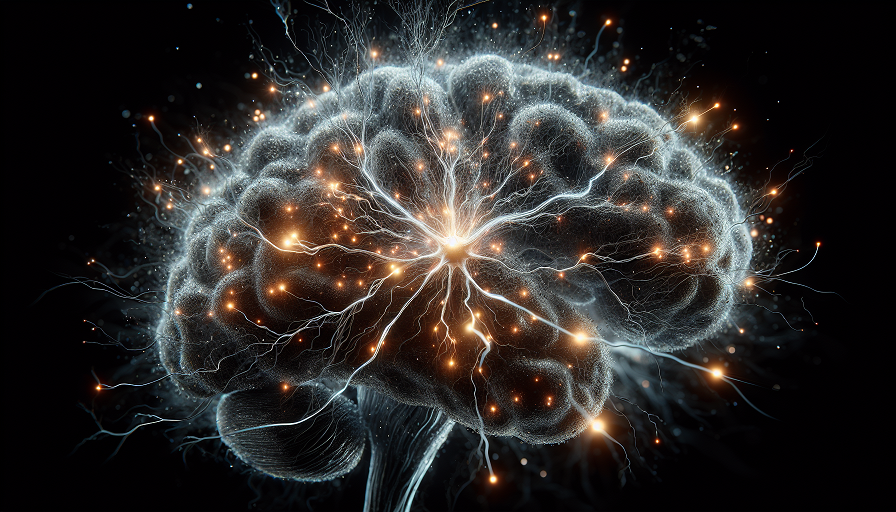
Possibly, but the evidence is mixed. Intermittent celibacy may help some people feel mentally recharged by conserving physical energy, reducing distraction, and increasing focus. However, there is no scientific consensus that abstinence directly boosts cognitive function. The effects likely depend on psychological, cultural, and individual factors rather than universal biological mechanisms.
Contents
- What Is Intermittent Celibacy?
- The Brain’s Relationship with Sexual Activity
- Scientific Evidence on Abstinence and Cognition
- Traditional and Cultural Views
- Psychological Mechanisms of Perceived Mental Recharge
- Possible Downsides
- Who Might Benefit?
- Evidence-Based Alternatives for Mental Energy
- The Bottom Line
What Is Intermittent Celibacy?
Intermittent celibacy refers to deliberate, temporary periods of abstaining from sexual activity. Unlike lifelong celibacy, intermittent practice is often framed as a personal reset or a discipline exercise. People may adopt it for spiritual growth, cultural reasons, performance optimization, or curiosity about its impact on energy and mental clarity.
The Brain’s Relationship with Sexual Activity
Sexual activity strongly engages brain chemistry:
- Dopamine release: Increases motivation and reward-seeking.
- Oxytocin and serotonin: Promote bonding and relaxation.
- Endorphins: Reduce stress and improve mood.
Abstaining from sex temporarily alters these neurochemical rhythms, which may affect energy and focus in complex ways.
Scientific Evidence on Abstinence and Cognition
- Short-term abstinence: Some studies suggest testosterone levels rise slightly after several days without ejaculation, potentially influencing energy and motivation, though effects are inconsistent.
- Long-term abstinence: Extended celibacy does not appear to confer lasting brain benefits and may even increase stress if it causes frustration.
- Self-regulation benefits: Practicing abstinence can strengthen willpower, a skill transferable to focus and goal-setting.
- Stress and distraction: For some, abstinence reduces mental preoccupation with sex, freeing attention for other tasks.
Traditional and Cultural Views
Many spiritual and philosophical traditions view celibacy as a path to higher clarity:
- Yoga and Tantra: Some practitioners believe conserving sexual energy (ojas) enhances vitality and mental sharpness.
- Buddhist monastic practices: Celibacy is used to cultivate detachment and focus on meditation.
- Western ascetic traditions: Monks and mystics historically adopted celibacy for purity and concentration of mind.
Though not framed in modern neuroscience terms, these practices highlight the longstanding belief that abstinence can free mental resources.
Psychological Mechanisms of Perceived Mental Recharge
- Reduced distraction: Abstinence lowers mental preoccupation with sexual pursuits, enhancing focus.
- Energy reallocation: Some individuals feel more physically energized when not engaging in frequent sexual activity.
- Heightened motivation: Delaying gratification can increase drive and sharpen intention-setting.
- Ritual discipline: The structure of intermittent celibacy may enhance self-awareness and mindfulness.
Possible Downsides
- Increased frustration: For some, abstinence raises stress and irritability.
- Reduced intimacy: Absence of sexual bonding can diminish oxytocin release and emotional connection.
- No universal benefit: People respond differently; what feels energizing for one may feel depleting for another.
Who Might Benefit?
- People seeking discipline: Those working on self-control may find abstinence strengthens focus.
- Spiritual practitioners: Celibacy aligns with contemplative traditions that emphasize detachment and inner clarity.
- High-performance individuals: Athletes or creators may experiment with intermittent celibacy as part of ritual preparation, though results are subjective.
Evidence-Based Alternatives for Mental Energy
- Exercise: Boosts neurochemistry for sustained energy.
- Nutrition: Balanced intake of protein, omega-3s, and micronutrients fuels the brain.
- Sleep: Deep sleep cycles restore mental clarity more effectively than abstinence.
- Meditation: Proven to sharpen focus and enhance self-control.
- Time management: Structured routines reduce decision fatigue and mental drain.
The Bottom Line
Intermittent celibacy may subjectively recharge mental energy for some people, especially through reduced distraction and increased self-discipline. However, there is no strong scientific evidence that abstinence directly improves brain performance. The practice may work best when combined with other proven strategies for brain health, such as exercise, nutrition, and mindfulness.

